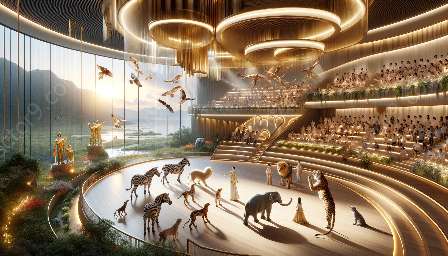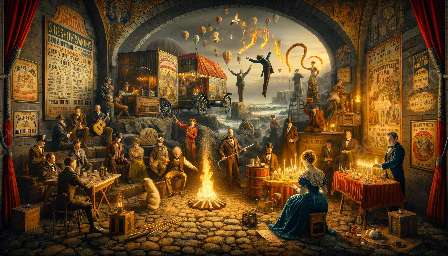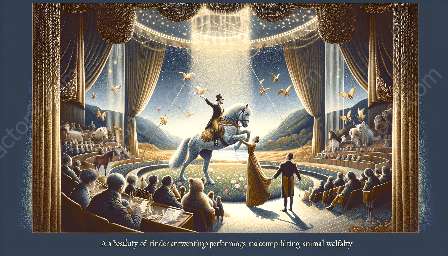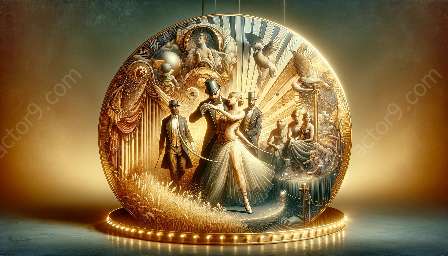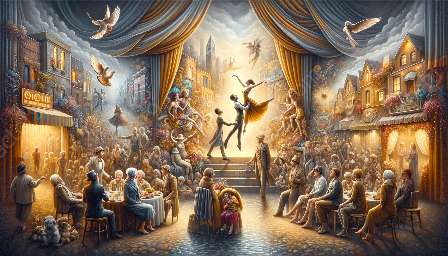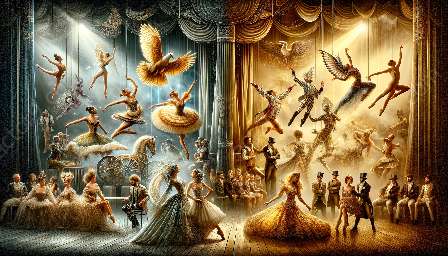The world of circus festivals and competitions is a vibrant and captivating sector within the circus arts industry. Whether you are a passionate circus performer, a dedicated fan, or a curious observer, understanding the promotion and marketing strategies behind these events can provide valuable insights into the art and business of the circus. In this comprehensive guide, we will delve into the various aspects of promoting and marketing circus festivals and competitions, exploring the key components, challenges, and opportunities within this exciting realm.
The Significance of Circus Festivals and Competitions
Circus festivals and competitions play a crucial role in celebrating the diversity, creativity, and skill within the circus arts. These events serve as platforms for performers to showcase their talents, connect with industry professionals, and engage with audiences from around the world. Moreover, they contribute to the preservation and evolution of traditional circus disciplines while also fostering innovation and experimentation within the art form.
From awe-inspiring acrobatics and daring aerial acts to mesmerizing clown performances and enchanting animal displays, circus festivals and competitions offer a kaleidoscope of experiences that captivate and inspire audiences of all ages. Beyond entertainment, these events also serve as incubators for talent development, community building, and cultural exchange, making them an integral part of the global circus landscape.
Promotion Strategies for Circus Festivals and Competitions
Effective promotion is essential for ensuring the success and visibility of circus festivals and competitions. To attract performers, sponsors, and audiences, organizers need to employ a variety of promotional strategies that harness the power of traditional and digital marketing channels.
Online Presence and Digital Marketing
Establishing a strong online presence is fundamental in promoting circus festivals and competitions. This includes creating a user-friendly and visually engaging website that provides comprehensive information about the event, including schedules, participant profiles, and ticketing details. Utilizing social media platforms such as Facebook, Instagram, and Twitter allows organizers to reach a broad audience and generate excitement through engaging content, behind-the-scenes glimpses, and interactive campaigns. In addition, leveraging email marketing, online advertisements, and partnerships with online influencers can further amplify the reach and impact of promotional efforts.
Traditional Marketing and Public Relations
While digital marketing is essential, traditional methods such as print media, radio spots, and television features still hold relevance in reaching diverse demographics and communities. Collaborating with local and national media outlets, securing interviews with key performers, and organizing press events can generate valuable publicity and interest in the festival or competition. Moreover, establishing partnerships with tourism boards, cultural organizations, and related industry stakeholders can enhance visibility and attract broader support for the event.
Challenges and Opportunities in Marketing Circus Festivals and Competitions
Despite the immense appeal of circus festivals and competitions, organizers face several challenges in effectively marketing these events. Competition from other entertainment options, budget constraints, and the need to navigate cultural sensitivities are just a few of the hurdles that organizers must overcome. Furthermore, reaching new and diverse audiences, maintaining ongoing engagement beyond the event dates, and adapting to changing consumer behaviors pose continuous challenges in promoting these events.
However, these challenges also present opportunities for innovation and growth. Embracing immersive technologies such as virtual reality experiences, live streaming of performances, and interactive online forums can extend the reach of circus festivals and competitions to global audiences. Collaboration with artists from diverse cultural backgrounds, curating unique themed events, and integrating sustainable and socially responsible practices into the marketing approach can also enhance the appeal and relevance of these events.
Impact on the Circus Arts Industry
The promotion and marketing of circus festivals and competitions not only contribute to the success of individual events but also have a profound impact on the broader circus arts industry. By creating visibility and demand for circus arts, these events support the livelihoods of performers, inspire the next generation of artists, and contribute to the preservation and evolution of the art form. Furthermore, the marketing strategies and innovations developed within the context of circus festivals and competitions often serve as a catalyst for creativity and excellence, influencing the broader entertainment industry and cultural landscape.
Conclusion
In conclusion, the promotion and marketing of circus festivals and competitions are essential components of the dynamic and multifaceted circus arts industry. By understanding the significance of these events, the challenges and opportunities in their promotion, and their impact on the broader industry, stakeholders can develop strategies that elevate the visibility, relevance, and sustainability of circus festivals and competitions. As the circus arts continue to evolve and captivate audiences worldwide, the role of promotion and marketing in shaping the future of circus festivals and competitions is paramount.













